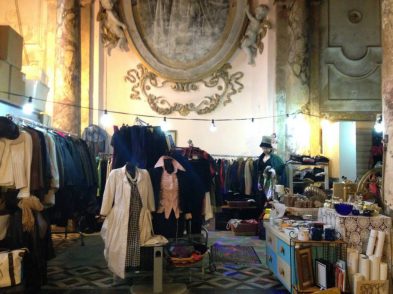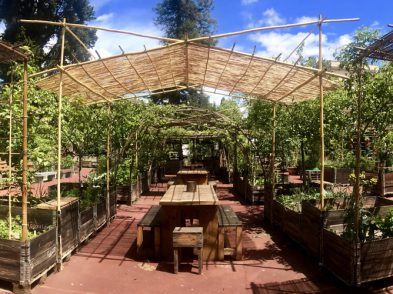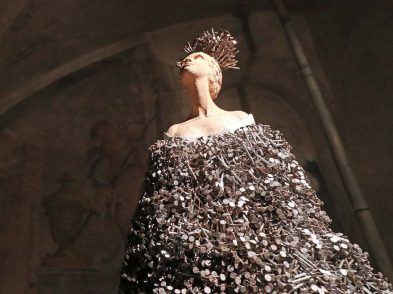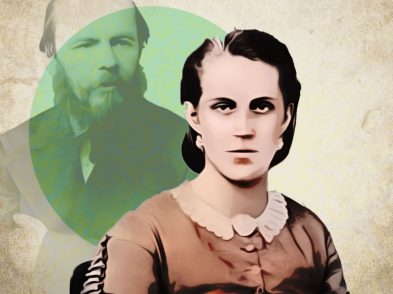What can Florence’s enterprising boutiques tell us about its sartorial habits? There’s an undercurrent of small business owners who keep the fashionistas well-heeled and individual in style. We had a chat with some of them to investigate the secret style life of the city.
Street Doing
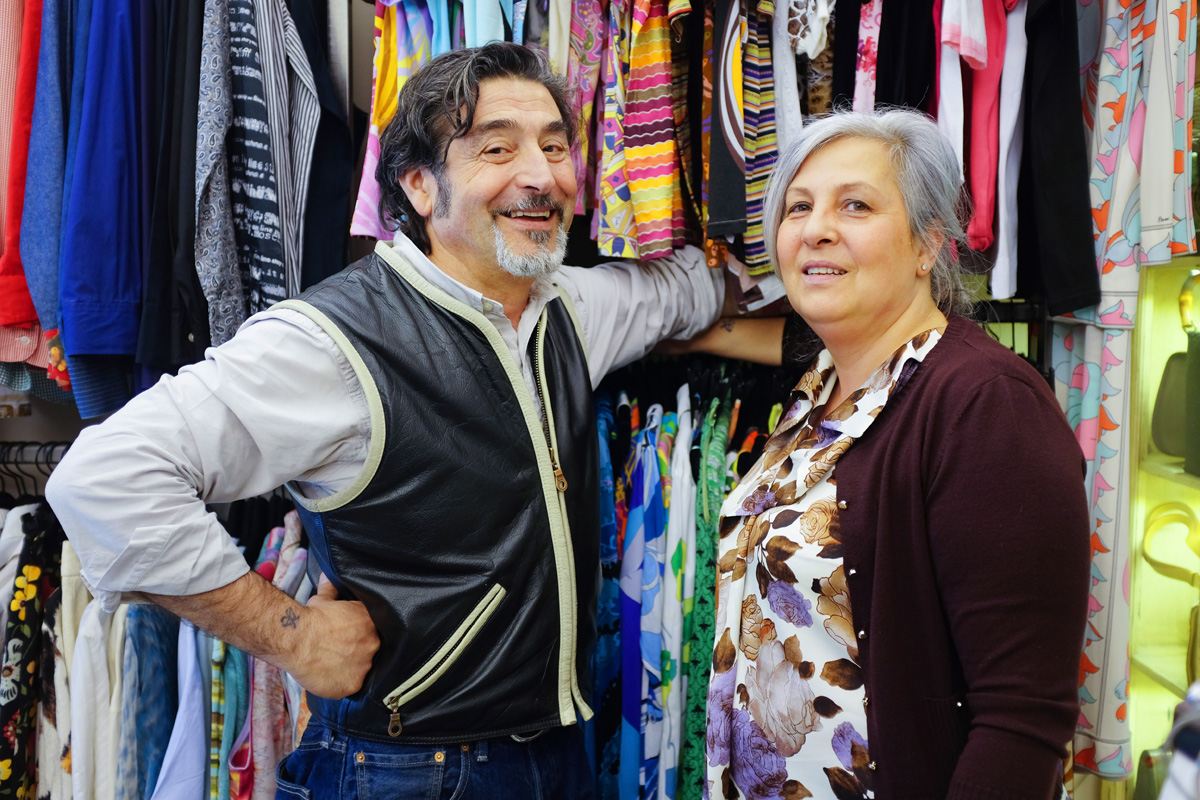
Street Doing Vintage Couture (via dei Servi) is a gem of curated vintage run by Gianfranco and Giovanna. Full of colour and charm, it reflects the duo’s passion for vintage clothing and belief in the emotive power of dressing.
Phoebe Owston: Can you tell me a bit about Street Doing?
Gianfranco: We started off selling second-hand clothing in markets. Many people mix up vintage and second-hand, but vintage is an item that has a story behind it, whereas second-hand is just clothing that has already been owned. We do a selection from these pieces and work closely with important Florentine families who have particularly beautiful and interesting pieces, as well as going to auctions.
PO: What is fashion in Florence?
Gianfranco: Florence is fashion history. Prato is so close by and has this amazing culture of fabric and swatch making. In 1949, Emilio Pucci did the first fashion show in Italy in the Sala Bianca of the Pitti Palace.
Giovanna: He put on the first fashion show and aristocratic people came to see and copy the trends, and that’s how fashion here started.
PO: Who’s Street Doing’s typical customer?
Giovanna: There are many different kinds of customer. There’s the customer who is used to dressing in a certain way, who used to be able to buy certain things and no longer can anymore, so they look for vintage clothes. Today, everything is very uniform and it’s hard to distinguish styles. I’d say that a vintage shop that is “done well” is for nostalgic people, for those who want to understand and appreciate how things used to be. Young people want to try out how fashion used to be and others want to find what you can’t find anymore.
PO: Would you say that fashion is an emotive thing?
Giovanna: Yes, I think so. I see people come into the shop and they love this dress because it reminds them of something similar their aunt used to wear. At one point, you used to go to the tailor or you made the dress yourself, and this was how you expressed your personality. Now, when you go to a vintage store you’re going against the grain because you can find things that no one else has.
Guya
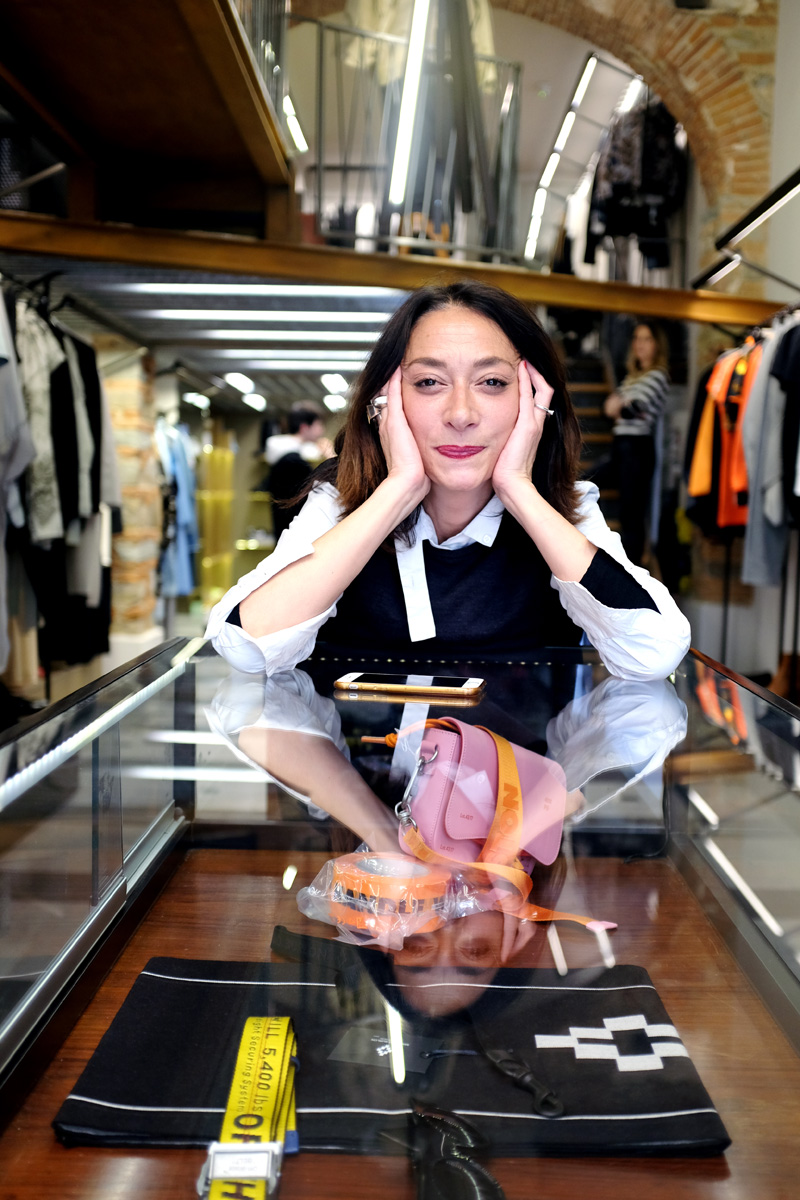
Guya Nigi is the charismatic and cool manager of Guya
Guya Nigi is the charismatic and cool manager of Guya, a historic fashion hotspot just metres from piazza della Repubblica (via Por Santa Maria/via Calimala).
PO: Can you tell me a bit about Guya?
My parents founded the business after they opened a small tailoring business in post-war Florence. My father was a tailor and in the 1950s my parents didn’t serve many Italians due to the post-war poverty that hit the country. Their main customer was the American tourist. Thanks to the industrial development in Prato, the business began to follow what was called pronto-moda: the shop owner buys the item, it’s displayed in the window and the customer comes to buy it. In the 1980s, Florence was a very creative place and people were looking to start up brands, so my parents decided to throw themselves into a brand as a concept. My parents didn’t have a lot of money when they started the shop; they started with nothing in their pockets and they’ve put blood, sweat and tears into this, and I think that’s what makes the difference.
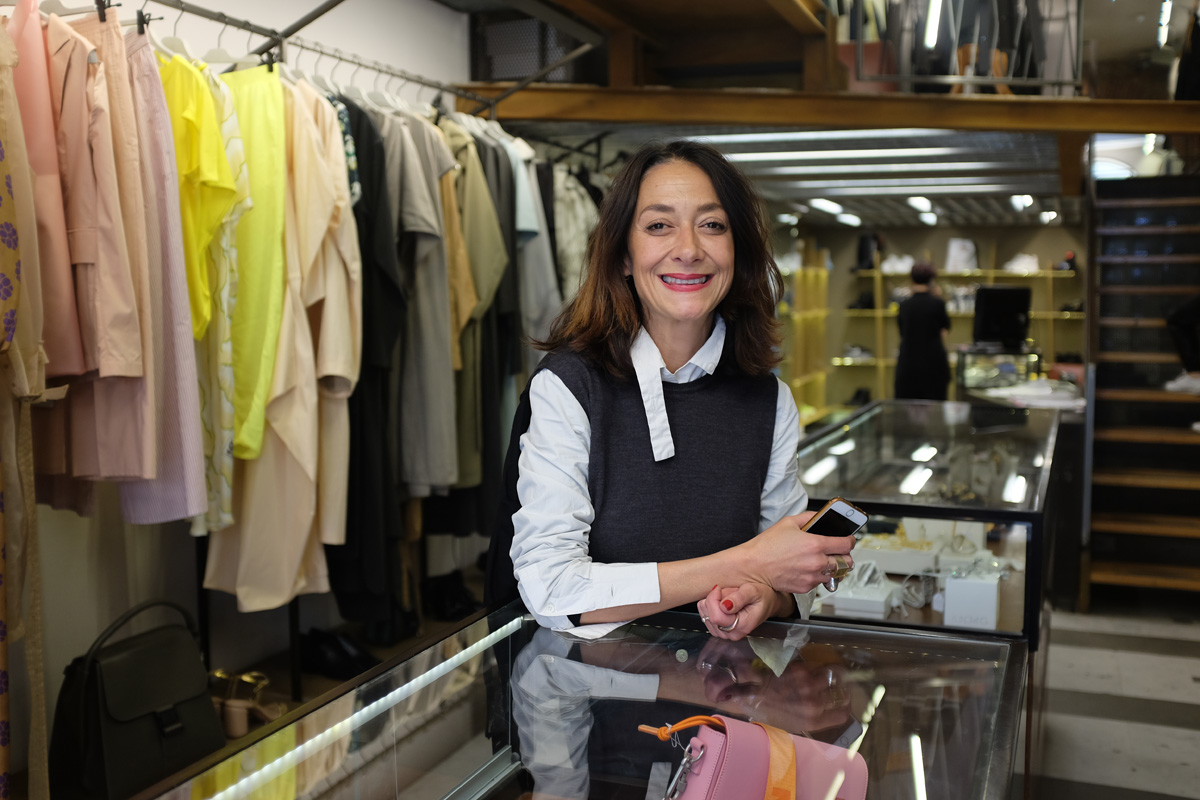
PO: Who’s Guya’s typical customer?
Unfortunately, clothing stores that serve mostly Florentines tend to close. Sometimes, fashion is seen here as something not to be appreciated; it’s more conservative. At Guya, we notice a different flux of tourists and visitors; it’s like a mirror onto the world. For example, if there’s been an earthquake in Japan, we’ll see fewer Japanese customers. It’s difficult to predict, but they say that being a businessperson in Florence is like driving in Florence; if you can do it here, you can do it anywhere.
PO: Why do people come to Guya?
People come here for that special something, which perhaps doesn’t get rendered or communicated through a photo online; you can’t touch, experience or try on the item. We manage to have products that excite our customers and give that sense that you’re buying something special.
Société Anonyme
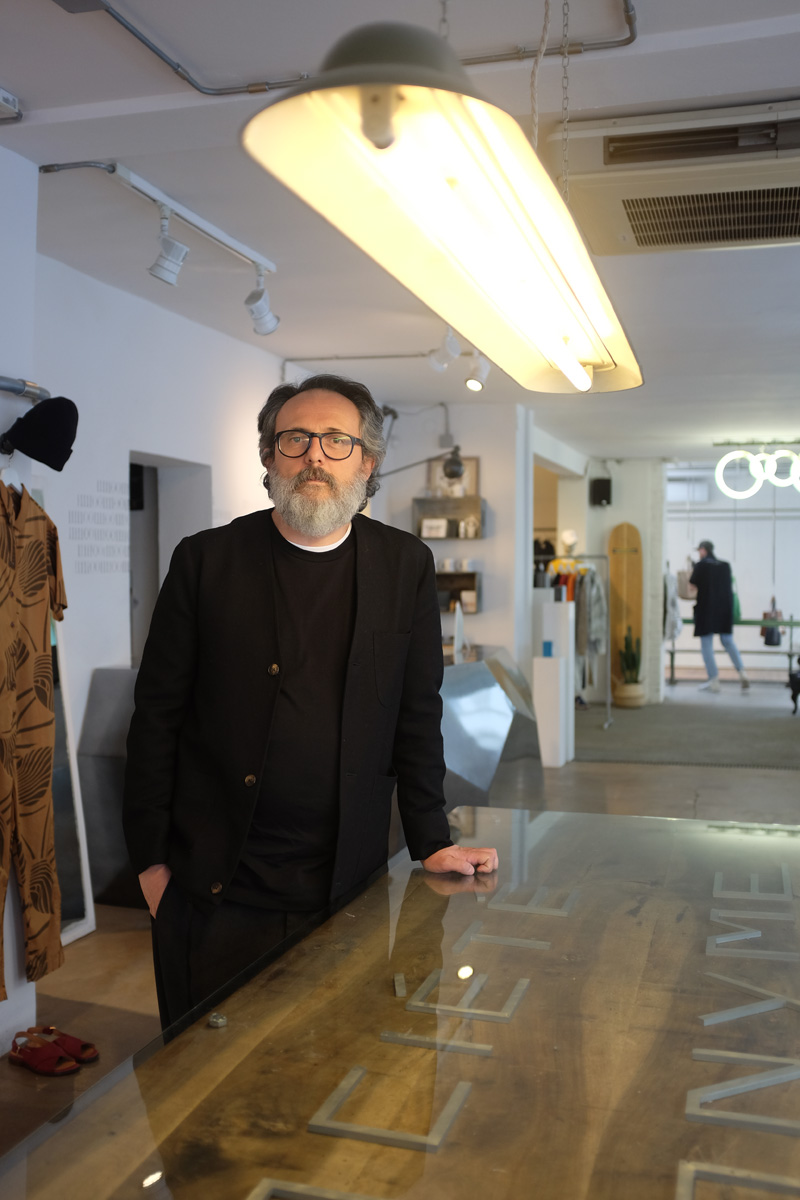
Massimiliano Giannelli, owner of Société Anonyme
Massimiliano Giannelli is the owner of Société Anonyme (via Niccolini + via Maggio), an independent concept store inspired by Dada and Marcel Duchamp’s ready-made, whose international outlook means he’s got big aspirations for his city and his business.
PO: Can you tell me a bit about Société Anonyme?
I founded the store in 1999. It’s inspired by an art gallery called Société Anonyme that Marcel Duchamp and Peggy Guggenheim founded in New York. It was an avant-garde art gallery. I did my thesis at Polimoda on Marcel Duchamp and the Dada period really inspires me because there was a peak in creativity at that time that’s incomparable to today and which has never been repeated.
PO: How has the city of Florence influenced you?
If you live here, you’re surrounded by beauty. It influences my style. My style is intentionally very international because I think that this city should be more contemporary, but I’m very passionate about Florence and its beauty.
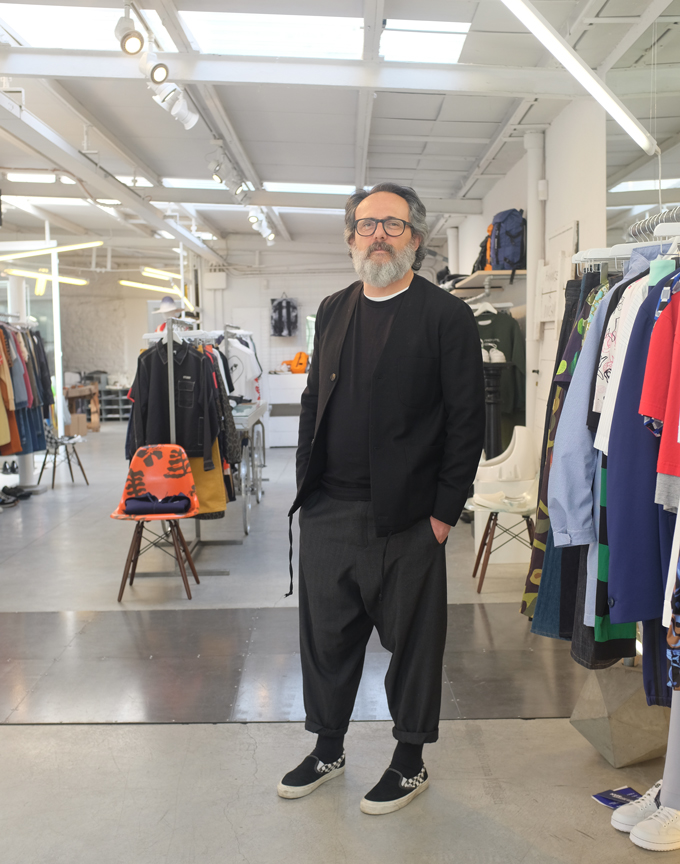
PO: Are you doing anything for Pitti?
We’re going to do something really cool. On June 11, we’re going to present a collaboration with a German brand that was started in Italy, called “Closed”. We’re going to present a capsule of 20 pieces, some classic and some archival, and we’ll have a party in the shop.
PO: What does the future look like for Société Anonyme?
You can only live in the present because you don’t know what the future will be like; everything is so fast. They’re saying that from September you’ll be able to sell directly on Instagram without having to go through a website; that’s huge. It’s another revolution. You need to create a strong brand. If you’re an independent store and you’re not a strong brand, you’ll probably have big problems.
Florence, fashion and me
Fashion is the most relentless expression of identity—Phoebe Owston
Every day, I get dressed, I make choices, and I think about how I want to present myself. Not a day goes by when I don’t think about how I am dressed or how I will dress tomorrow. This may seem superficial, but I don’t see it that way. Choice is a fact of human existence; we are forced to be free and in being free we are forced to choose. The most frequent choice you make aside from eating and speaking is what you wear. Refusing to have a relationship with fashion is as strong a choice as embracing your relationship with it.
London is one of the most sartorially accepting places in the world. You can pretty much dress how you like and no one will judge you. When I miss home, when I want to be comfortable and when I want to pull back from femininity, I choose loose Levis, sweatshirts, dungarees and Adidas superstars; an urban aesthetic that isn’t very “Italian”. I feel attached to my roots, ready to take on the world and confident.
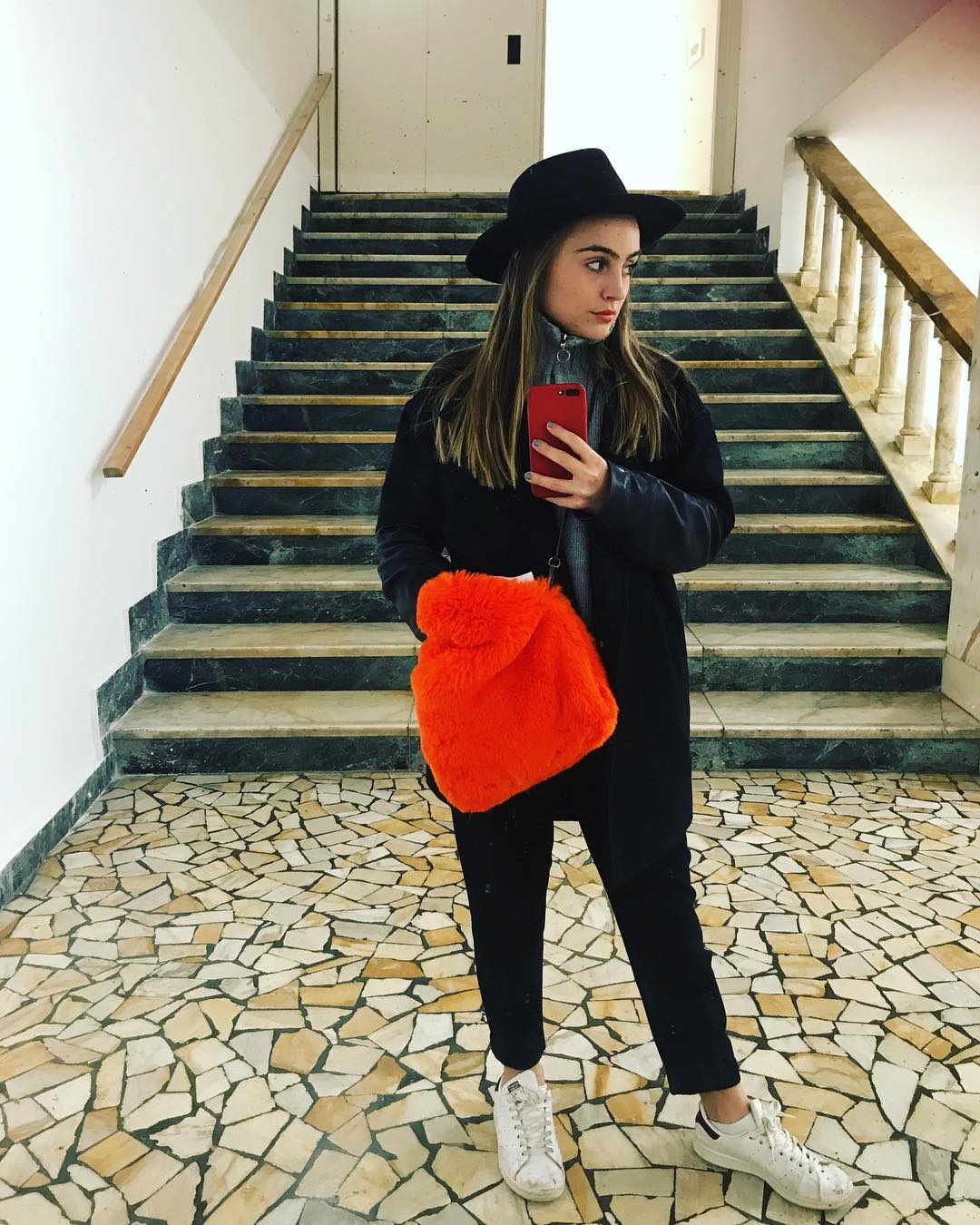
I associate Florence with my career and my friends. I dress for these two elements of my life in a classic way; patterned shift dresses, wide-leg trousers, vintage waistcoats and black penny loafers. I fit in and I feel refined and beautiful in a more classic, elegant and ultimately more “Italian” outfit that day. Wearing matching socks, unladdered tights or an ironed shirt are all details, at times obsessions, which my adopted compatriots have passed onto me, things that, in England, are less important.
Without Florence’s sophistication, a metropolitan, relaxed aesthetic wouldn’t feel like home and without my London background, dressing in a feminine, timeless way wouldn’t feel so special.


